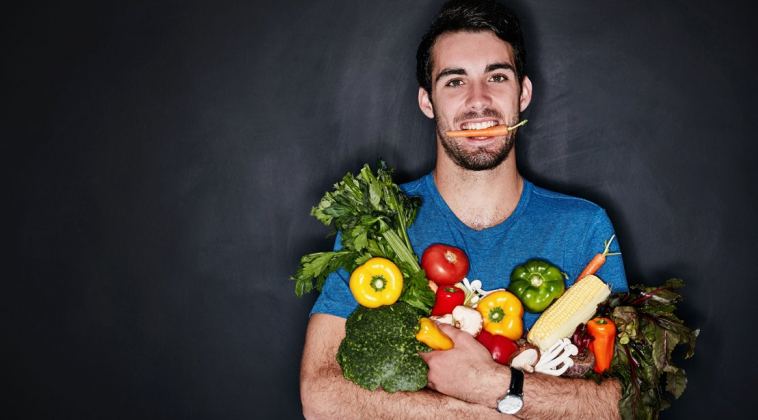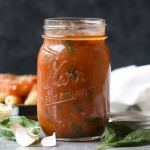- Like
- SHARE
- Digg
- Del
- Tumblr
- VKontakte
- Flattr
- Buffer
- Love This
- Save
- Odnoklassniki
- Meneame
- Blogger
- Amazon
- Yahoo Mail
- Gmail
- AOL
- Newsvine
- HackerNews
- Evernote
- MySpace
- Mail.ru
- Viadeo
- Line
- Comments
- Yummly
- SMS
- Viber
- Telegram
- JOIN
- Skype
- Facebook Messenger
- Kakao
- LiveJournal
- Yammer
- Edgar
- Fintel
- Mix
- Instapaper
- Copy Link
Online grocery shopping has become a way of life for many; it’s convenient, easy, and comes right to your doorstep. No long lines at the grocery store, or dealing with traffic — what’s not to like? In fact, the food and beverage retail e-commerce has exceeded 15 billion US dollars in 2020 and is expected to surpass the $20 billion threshold by 2023! That’s a lot of online shopping carts.
For the health-conscious individuals who are looking to do more grocery shopping online in the future, you may feel somewhat confused as to what foods are truly healthy.
This is where Jenna Stangland, MS, RD, CSSD, LD, and dietitian for the NHL’s Minnesota Wild and Momentous brands comes in with simple yet important advice. “Evaluating the ingredients is key!” she says. And although reading labels for many can be overwhelming, Stangland breaks down the key ingredients to choosing wisely.
Understanding Food Labels
The first thing to notice for when reading the food labels is the amount of ingredients. According to Stangland, the fewer ingredients the better — most of the time. “The nutrition label can give good insight to the serving size, and nutrient breakdown which includes each type of fat, and specifying if there are added sugars vs real sugar from fruit; but the ingredients are where the details are at,” she says. Once you learn how to read the label you will feel more comfortable making your purchases.
“The ingredients allow you to identify what Types of food are contributing to those grams of fat or grams of carbs or grams of protein,” Stangland adds. For example: Seeing that a salad dressing has 12 grams of fat in a serving is one thing, but seeing that the salad dressing contains vegetable oil instead of avocado oil gives a better definition of how the body will respond and process to the nondescript 12 grams of fat.
“Seek out plant-based omega-3 fats like avocado and olive, and look for nut butters that only contain nuts and maybe salt, there’s no need for an additional oil on the ingredients,” she adds.
You want to look for real, whole ingredients without added hormones or chemicals like the ones below.
Tips for Online Grocery Shopping
Stangland advises exploring options for where to do online shopping. Some platforms provide filters on what types of products you are looking for so you can filter out products that do not contain inflammatory foods or foods your body is sensitive to, which then makes it easier and more efficient to shop.
Check out the online options and affiliated apps, there are ways to do healthy online grocery shopping without breaking the bank and instead scoring some deals on healthy, whole-food choices such as a new brand of nut butters or in-season produce.
Now let’s shop!


